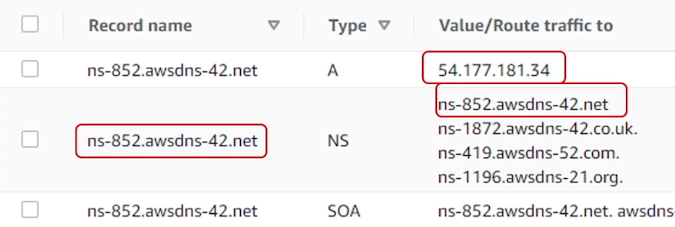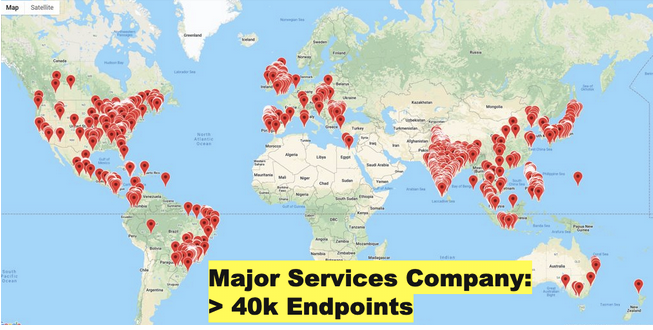A new domain name system (DNS) attack method that involves registering a domain with a specific name can be leveraged for what researchers described as “nation-state level spying.”
The attack method was identified by researchers at cloud infrastructure security company Wiz while conducting an analysis of Amazon Route 53, a cloud DNS web service offered to AWS users. The findings were presented this week at the Black Hat cybersecurity conference in Las Vegas.
Route 53 provides roughly 2,000 DNS servers that have names such as ns-852.awsdns-42.net. The Wiz researchers discovered that registering a domain with such a name and adding it in Route 53 to the DNS server with the same name had some interesting results if they linked the domain to the IP address of a server they controlled.

“Whenever a DNS client queries this name server about itself (which thousands of devices do automatically to update their IP address within their managed network – more on that in a minute), that traffic goes directly to our IP address,” the researchers explained in a blog post published following their Black Hat presentation.
They claim to have received DNS traffic from more than 15,000 organizations, including Fortune 500 companies, 45 U.S. government agencies, and 85 government agencies from other countries. The intercepted data included internal and external IP addresses, computer names, user names, and office locations.
This data was included in dynamic DNS traffic from Windows devices. According to the researchers, the issue is related to an algorithm used by Windows devices to find and update the master DNS server when IP addresses change.
“[The leaked traffic] gives anyone a bird’s eye view on what’s happening inside companies and governments. We liken this to having nation-state level spying capability – and getting it was as easy as registering a domain,” the researchers said.
To demonstrate the potential impact of such an attack, they used the harvested data to map the location of employees of a major services company based on traffic received from more than 40,000 computers.

They claim that such location mapping has also enabled them to determine that a major commodity trading firm and a large credit union’s subsidiary apparently have employees in countries that are sanctioned by the United States, which would represent a violation of those sanctions.
After being informed about the issue, Amazon and Google implemented fixes, but Wiz believes other DNS providers could be vulnerable as well, which means such attacks would still be possible.
Microsoft was also notified, but the tech giant said it was a “known misconfiguration that occurs when an organization works with external DNS resolvers,” rather than a vulnerability.
Wiz says that while service providers could take some steps to prevent such incidents, organizations can prevent such data leakage by ensuring that DNS resolvers are properly configured to prevent dynamic DNS updates from leaving the internal network.
Related: NSA, DHS Issue Guidance on Protective DNS
Related: TsuNAME Vulnerability Can Be Exploited for DDoS Attacks on DNS Servers
Related: At Least 100 Million Devices Affected by “NAME:WRECK” DNS Flaws in TCP/IP Stacks















